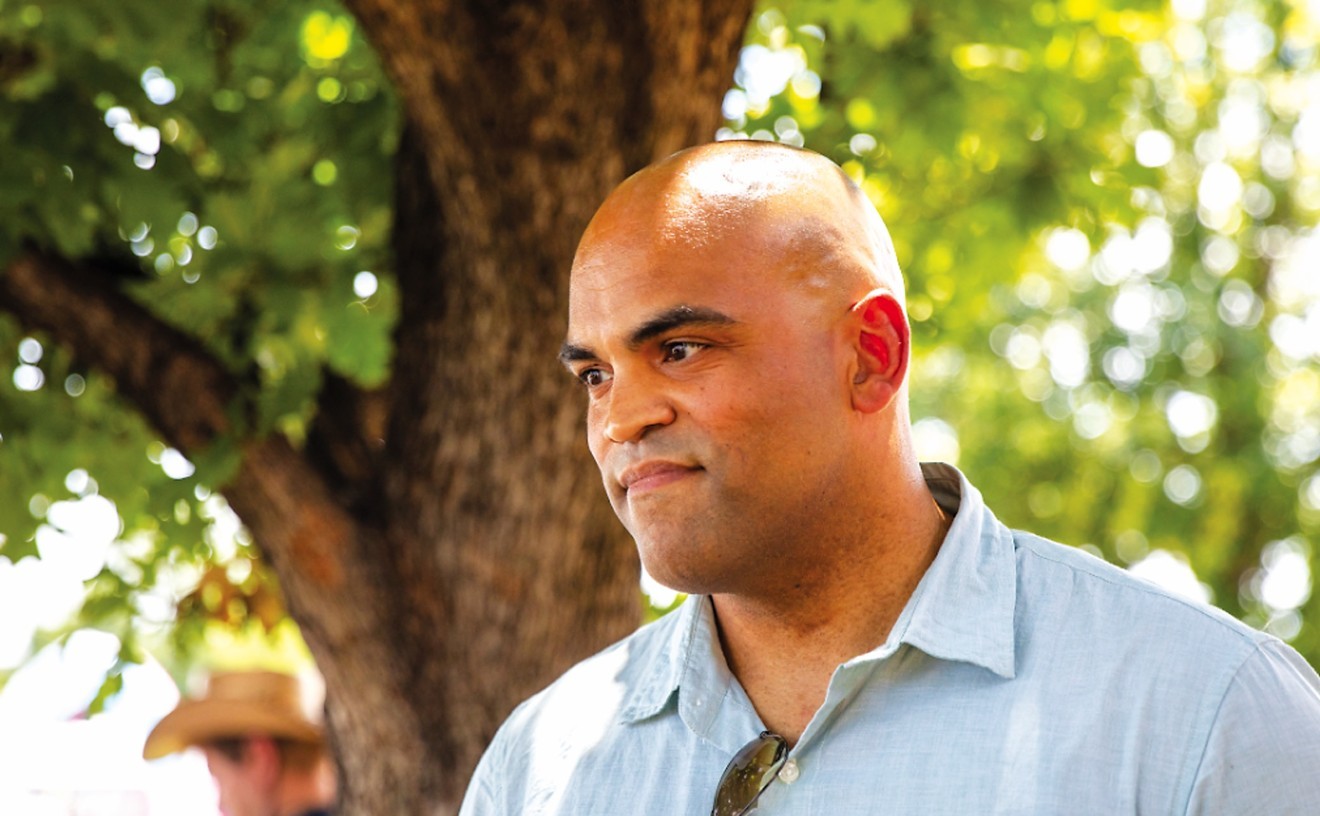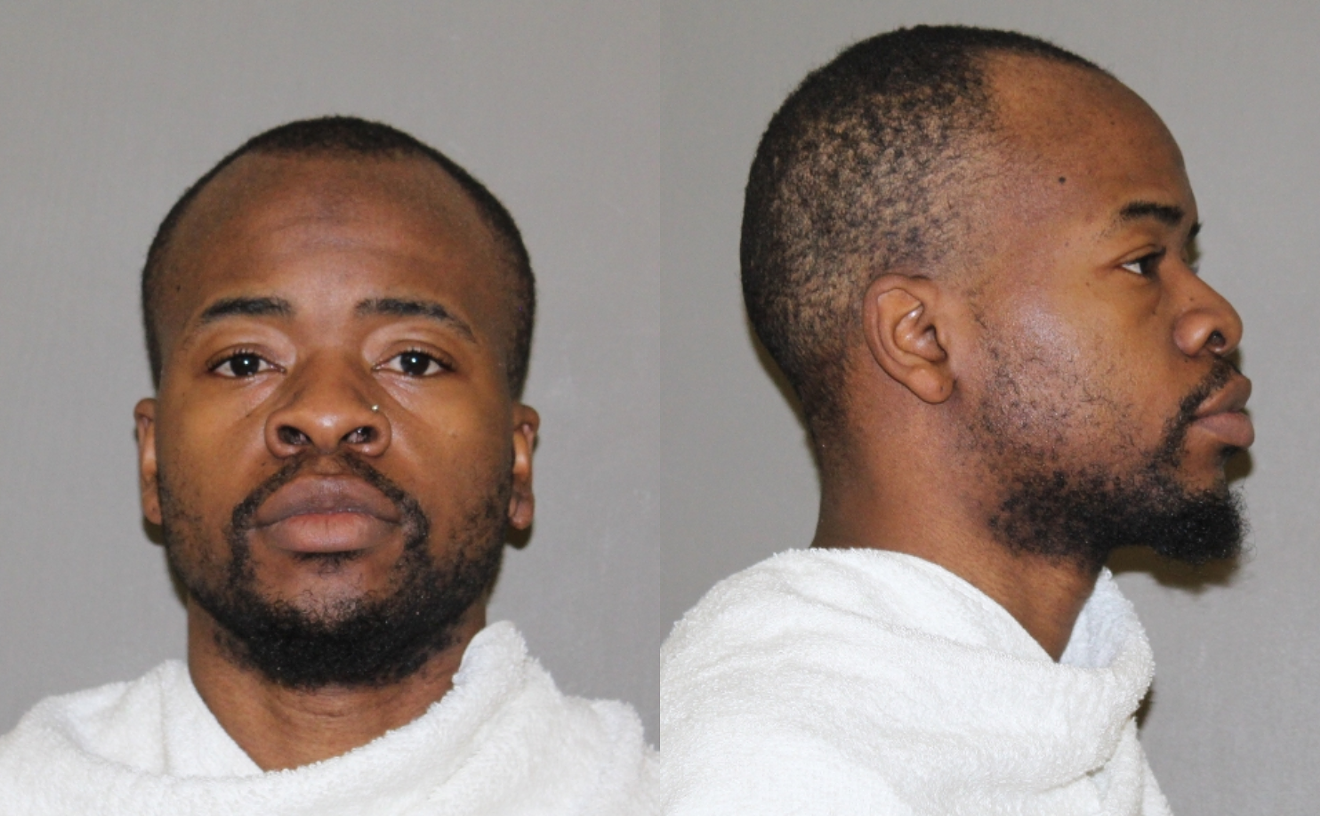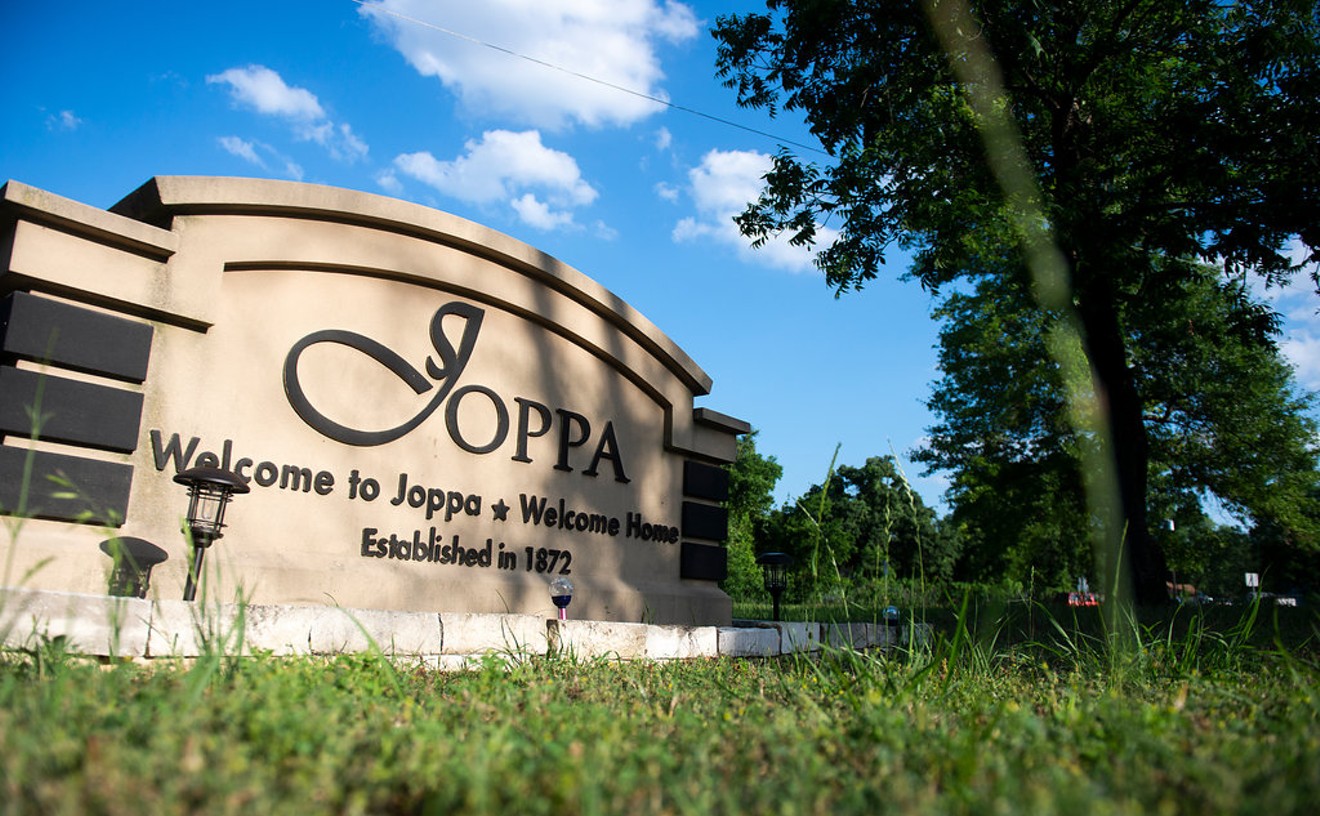"They made a little improvement in the beginning, but it's been going downhill for a while," Jordan says. "And you know, I don't know where you reach the point that you finally say enough's enough."
Jordan believed Moore's Precious Puppies had problems, but he didn't know where to turn. Van Zandt County doesn't earmark money to enforce animal-cruelty laws, Jordan says, and people suspected of animal abuse or neglect often receive warnings and little else. Officers "don't bother to go back, because you're afraid you might see something. We had a tendency to look the other way," Jordan says.
Jordan began to look into resources he could tap to help the puppies.
Jordan contacted several nearby Humane Society chapters, but he found openings for only four dogs. If what his tipsters said were true, at least 100 dogs at Moore's would need food, water, shelter and care if he moved to confiscate them. Luckily for him and the pups, his girlfriend and her mother found the Dallas SPCA on the Internet. More important, they found Dave Garcia, SPCA Dallas' vice president of operations and humane-law enforcement.
Since Garcia was hired away three years ago from Houston's SPCA investigations and rescue, where he trained the team shown on the TV program Animal Cops, Dallas SPCA has doubled its number of investigators and increased the number of animal welfare citations issued by 500 percent. Burned cats, skinned dogs and puppy mills are brought to the public's attention more often. While it may seem that cases of animal cruelty are surging, Garcia says that what is really happening is that the public and law enforcement are more aware of the problem and whom to call.
Jordan and Van Zandt County Justice of the Peace Tracey Garner, who presided over a civil trial that ended with the SPCA gaining custody of Moore's dogs, agree that without the SPCA and Garcia's expertise, there probably couldn't have been a rescue. Jordan recalls the point at which the SPCA investigators came in: "It was like God had opened the skies. It was wonderful."
SPCA investigator Kenneth Qualls and Jordan observed the Moores' property from across the road to ensure there would be a strong case before attempting seizure of the dogs. "We observed, you know, a lot of the dogs chained, staked out and their bones showing." It was the same scene Jordan had witnessed 10 months earlier. "But it was worse and more dogs. They had added more dogs."
That was enough for Garner to sign a warrant allowing Jordan and the SPCA rescue team to seize almost 150 animals, some of them matted with feces, some chained on such short leads that they couldn't lie down. No animal had water, and not one bag of dog food was found on the property, Jordan says. The animals were dispersed among the Dallas, McKinney and Colony SPCAs and evaluated. Live video, photos and the initial evaluation sheets provided by the SPCA won the organization custody of the animals and resulted in a $6,480 fine for the Moores, who are still awaiting trial on criminal charges of animal abuse.
Calls and tips on animal cruelty from residents and officers such as Jordan have increased in the past three years, according to the Dallas SPCA. The calls have taken Garcia and his team as far as the Panhandle and Corpus Christi. "It's education with law enforcement," says Garcia, who teaches a quarterly training course on cruelty investigation at the Dallas police academy. "You know, five years ago, a cat with a gouged-out eye, they'd go, 'Oh, well, that's bad,' and walk on. But now they're looking into it even further. Some of the classes I teach at the academies, I try to get them to understand that whoever did that to this animal could possibly escalate into doing that to people." Garcia stresses that violent acts toward an animal are what he calls "indicator crimes."
Garcia recalls three cases--a father who set fire to the family dog, a 6-year-old girl drowning kittens and two 9-year-old boys shooting a tied-up puppy with darts. His inquiries to Child Protective Services led to the discoveries that in each case, children were being either sexually or physically abused. Because of his determination to cross-train investigators with law enforcement and protective agencies, a growing number of calls to the SPCA are coming from law enforcement instead of the public.
Garcia has been in the animal-welfare business for 20 years--ever since he saw a photo of an abused horse at a Missouri Equine Council Convention. A man who ran a volunteer response team answering calls on horse abuse was at the convention, sitting behind a table covered with disturbing photos of injured animals. "I told him that he was full of crap," Garcia says. "I said, 'This doesn't go on in the horse industry.' I had had no exposure to animal welfare at that time." The man invited Garcia to join the program and prove him wrong. Two years later, Garcia had a full-time job.
"I sold my business; I had a long-distance company. I sold my farm so I could focus all of my energies on this full time." In Denver, Miami, Houston and Dallas, Garcia had similar impacts; in Missouri, he and a member of Missouri law enforcement began the National Cruelty Investigators School at the University of Missouri. Today, in addition to his work for the SPCA, Garcia sits on the board of directors for the Texas Humane Legislature Network. "We draft new laws, solicit supporters for those laws and people to carry those laws into legislative session for us. We lobby, and we testify in front of the House of Representatives."
Garcia has handled animals ranging from tigers to miniature horses, and despite the anger he sometimes feels toward bad owners, he takes care to keep his temper in check. "I have to remember that if I do something negative on that site, that makes us lose the case, then those animals are going to go back," he says. Still, the sights aren't easy to stomach. "My first six years in this work, it almost killed me. I got a divorce because of this. I had to go to rehab because I was drinking all the time--every night, because all I saw all day long are those horrific conditions and this horrible treatment of animals." With support from the agencies he worked for, Garcia began to understand that although he was helping animal welfare immensely, he was focusing on the horror, the torture and the fighting.
Now, his focus is positive. He's worked undercover busting puppy mills and dog-fighting rings. Gaining custody in his cases is an important step to providing a better life for a creature, but he cannot focus on the circumstances from which he rescues the animals. "I got 143 dogs out of horrible conditions in Canton, and those animals are going to bring joy and happiness to a lot of people. That's what makes my job worth doing now. At the shelters, that's where the memories begin."











